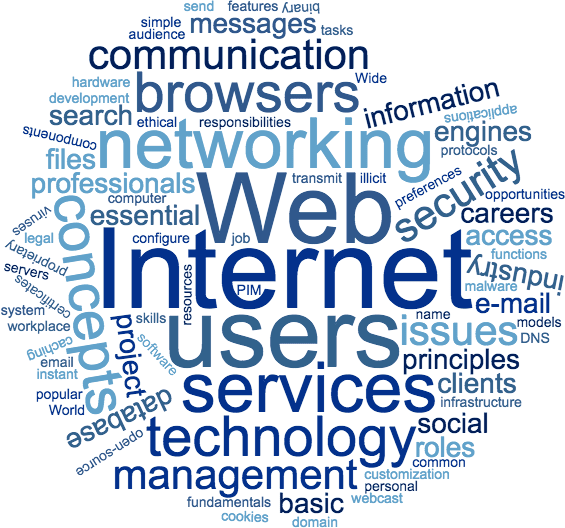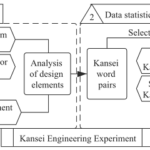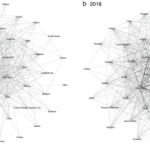
In today’s ever-evolving world, the Internet plays a crucial role in our lives and society as a whole, as it has revolutionized the way we communicate, learn, work, and do business. With just a few clicks, we have access to a vast amount of information, services, and opportunities that were previously unimaginable.
Moreover, the Internet has empowered individuals by providing a platform to express their thoughts, share their creativity, and connect with like-minded people. Social media platforms have become communication hubs, allowing us to stay connected with friends and family, and even form new relationships.
As our dependence on the Internet grows, so does the importance of having a strong online presence. Whether you are a business owner, content creator, or consumer, understanding the power of the Internet and leveraging its potential is essential in today’s digital age. In this article, we want to answer the question: Why is the Internet important? We will analyze the profound impact of the Internet, exploring its role in shaping our world and highlighting its countless benefits and opportunities.
Evolution of the Internet: from ARPANET to the World Wide Web
The Internet has come a long way since its inception. It all started with ARPANET, a network developed by the United States Department of Defense in the late 1960s. ARPANET allowed computers to communicate with each other, laying the groundwork for the Internet as we know it today.
In the following decades, the Internet evolved rapidly, with the development of protocols and technologies that enabled the creation of the World Wide Web. Tim Berners-Lee, a British computer scientist, is credited with inventing the World Wide Web in the late 1980s. This advancement made it easy to access and share information through web pages and hyperlinks, paving the way for the exponential growth of the Internet.
Today, the Internet has become an indispensable part of our lives. It has transitioned from a network primarily used by researchers and academics to a global platform that connects billions of people worldwide.
The importance of the Internet lies in its ability to connect people and information across the globe, fostering communication, collaboration, and the exchange of ideas. It has democratized access to knowledge, empowering individuals to pursue lifelong learning and engage in global conversations. Additionally, the Internet has revolutionized commerce, creating new opportunities for both businesses and consumers.
For example, Zhan et al. (2022) report a significant positive impact of the Internet and Information and Communication Technologies (ICT) on the short- and long-term quality of life of the population in China; their findings support that digital diffusion leads to good relationships and healthy behaviors among people, thus improving their quality of life. On the other hand, Nguyen et al. (2022) report a positive effect on the income of the use of the Internet for productive purposes in the rural population of three provinces in Thailand but also raise the concern of growing income inequality among rural populations due to Internet development.
What are the main benefits of the Internet?
The Internet has become an undeniable force in our lives, fundamentally changing the way we access information, connect with others, conduct business, and navigate the world. Beyond the convenience it offers, the Internet provides a multitude of benefits that empower individuals, businesses, and society as a whole. Some of the key advantages that the Internet brings to our daily lives include:
- Improved communication and global connectivity:
The Internet has revolutionized communication, dismantling geographical barriers and fostering instant connections worldwide.
- Democratized access to information and education:
The Internet has become a vast library of knowledge, offering unparalleled access to information on virtually any imaginable topic. This democratization of education enables anyone with an Internet connection to acquire valuable knowledge and skills, regardless of their location or socioeconomic background.
- Revolutionized business and e-commerce:
The Internet has transformed the business landscape, creating exciting opportunities for both entrepreneurs and established companies.
- Entertainment and social interaction:
The Internet offers a plethora of entertainment options catering to diverse interests and preferences. Streaming services provide access to a vast library of movies and shows, while online gaming platforms foster social interaction and friendly competition. Social media platforms allow us to connect with friends and family, share experiences, and discover new hobbies and communities.
- Enhanced access to services and resources:
The Internet has simplified access to essential services and resources. Online banking enables convenient financial transactions, while government websites provide easy access to official information and services. Healthcare providers use online platforms for appointments, consultations, and reliable medical information.
- Fostering innovation and entrepreneurship:
The Internet has driven the digitalization processes of companies, serving as a breeding ground for innovation and entrepreneurship. Online platforms connect investors with aspiring entrepreneurs, crowdfunding opportunities allow innovative ideas to gain momentum, and online communities provide valuable support and collaboration for startups. The reach and accessibility of the Internet accelerate the development and dissemination of new ideas, constantly pushing the boundaries of innovation.
This is a summary of the benefits of the Internet. In the following paragraphs, we provide a more detailed description of the main benefits.
Internet: a bridge to global connectivity
One of the most significant impacts of the Internet is its ability to connect people from all corners of the world. Through the Internet, individuals can communicate, share ideas, and collaborate regardless of geographical boundaries.
Email platforms, social media, and video conferencing have revolutionized the way we interact with friends, family, and colleagues. Global communication has fostered intercultural understanding and collaboration, breaking down barriers and promoting a sense of interconnectedness.
Communication: bridging distances and fostering connections
- Instant messaging and social networks: Platforms like WhatsApp, Facebook, and Twitter have transformed communication, enabling real-time conversations and fostering connections across great distances.
- Video conferencing: Tools like Zoom and Skype have revolutionized business meetings, remote work, and virtual classrooms, breaking down geographical barriers and promoting global collaboration.
- Social media and online communities: Social media platforms have created vibrant online communities where people can connect with like-minded individuals, share interests, and engage in meaningful discussions.
Why is the Internet important in education?
The Internet has democratized access to education, providing rapid access to information technology in various fields, thereby improving efficiency and saving time (Szymkowiak et al., 2021).
Moreover, the Internet has revolutionized traditional teaching methods, allowing for personalized learning experiences and fostering global collaboration in education. In this regard, Szymkowiak et al. (2021) investigated how technology and the Internet affect knowledge acquisition by Generation Z and what forms of knowledge acquisition this generation prefers; reporting that respondents leaned more towards learning through mobile apps and video content than through traditional methods.
In this sense, online courses, educational websites, and virtual libraries have expanded educational opportunities, empowering individuals to pursue lifelong learning.
Empowering students and revolutionizing education
- Online courses and learning platforms: Platforms like Coursera, edX, and Udemy offer a wide range of online courses, providing accessible and affordable education to students worldwide.
- Educational websites and resources: Numerous websites and online resources provide educational content, tutorials, and interactive learning experiences catering to diverse learning styles and interests.
- Virtual libraries and research tools: Online databases and digital archives offer access to a vast array of academic articles, books, and other research materials, supporting academic activities and research efforts.
Impact of the Internet on various industries
The Internet has disrupted and revolutionized several industries, fundamentally changing how they operate. One industry that has experienced significant transformation is the retail sector.
Online shopping has become increasingly popular, with consumers enjoying the convenience and accessibility it offers. E-commerce platforms like Amazon and Alibaba have revolutionized the retail landscape, allowing consumers to shop from the comfort of their homes and receive products at their doorstep. This shift in consumer behavior has forced traditional retailers to adapt or risk becoming obsolete.
Similarly, the Internet has had a profound impact on the entertainment industry. Streaming platforms like Netflix and Spotify have revolutionized the way we consume movies, TV shows, and music. The Internet has made it possible for content creators to reach a global audience without the need for traditional distribution channels. This democratization of content has led to new voices and perspectives, enriching the entertainment landscape.
Why is the Internet important in business?
The Internet has transformed the business landscape, creating new opportunities for both entrepreneurs and established companies. E-commerce has revolutionized retail, allowing businesses to reach a global audience and consumers to shop conveniently from their homes. The Internet has facilitated remote work, enabling companies to tap into a broader talent pool and foster global collaboration.
Infante and Mardikaningsih (2022) highlight that by using Internet technology, companies can conduct various business activities electronically, such as commercial transactions, operational functions, and sharing information with consumers and suppliers to maintain relationships before, during, and after the purchase process.
Transforming business and commerce
- E-commerce and online shopping: Online marketplaces like Amazon, eBay, and Alibaba have revolutionized retail, providing businesses with a global platform to reach customers and consumers with convenient access to a wide range of products. In this regard, the study by Priyanka et al. (2024) reports an example of the importance of the Internet in facilitating the use of artificial intelligence for product purchase recommendations.
- Remote work and virtual collaboration: Tools like Slack, Trello, and Google Workspace have enabled remote work and virtual collaboration, breaking down geographical barriers and allowing companies to tap into a broader talent pool.
- Digital marketing and social media engagement: Businesses leverage digital marketing strategies, social media platforms, and search engine optimization to reach target audiences, promote products and services, and build brand awareness.
The Internet has empowered individuals to express their opinions, organize movements, and advocate for social change. In this regard, Domínguez Castillo et al. (2022) report that technological empowerment allows rural women entrepreneurs in Mexico to improve their quality of life and increase their levels of underrepresentation; while Li and Lu (2024) highlight that the Internet significantly improves the bargaining power of women in rural China at the household level.
Similarly, Wei and Li (2024) report that Internet use can significantly reduce rural income inequality in China by improving information availability and the level of non-agricultural employment among farm households.
On the other hand, social media platforms have become powerful tools for activism, raising awareness of social issues and mobilizing support for marginalized communities. The Internet has facilitated the dissemination of information and knowledge, promoting transparency and accountability in governance. In this regard, Zhuravskaya et al. (2020) report that in places where major public grievances are related to corruption, subversion of power, and control of traditional media by autocrats, the Internet and free social media improve accountability by informing the public and facilitating protest organization.
- Social media activism and online movements: Social media platforms have become catalysts for social movements, allowing individuals to organize, mobilize, and advocate for social change, raise awareness of critical issues, and promote social justice.
- Citizen journalism and crowdsourcing: The Internet has democratized information, enabling individuals to share news, document events, and hold authorities accountable, promoting transparency and civic engagement.
- Global collaboration initiatives and social impact: Online platforms and networking tools facilitate cross-border collaboration, allowing individuals and organizations to connect, share resources, and work together to address global challenges and promote social impact.
Internet and Job Opportunities
The Internet has opened new avenues for job and business opportunities. With the rise of the gig economy and remote work, people can now work from anywhere in the world and have more control over their careers.
Freelance platforms like Upwork and Fiverr have made it easier for individuals to find freelance work and connect with clients globally. This has created opportunities for people with specific skills or experience to monetize their talents and develop successful freelance careers.
Moreover, the Internet has provided a platform for individuals to start their own online businesses and become entrepreneurs. E-commerce platforms, social media marketing, and digital advertising have made it possible for people to start and grow their businesses with minimal initial costs.
The Internet has also facilitated the growth of online markets and platforms. Artificial intelligence (AI) and blockchain will further revolutionize how we interact with the Internet. These technologies have the potential to enhance efficiency, security, and accessibility, opening new possibilities for innovation and growth.
Internet: Shaping the Future
As the Internet continues to evolve at a rapid pace, it is crucial to address ethical concerns and promote the responsible use of the Internet. Protecting privacy, combating misinformation, and ensuring responsible online behavior are essential for fostering a safe and productive digital environment. Educating people about responsible Internet use has become a necessity.
Ethical Considerations and Responsible Internet Use
As the Internet continues to evolve at a rapid pace, it is crucial to address ethical concerns and promote the responsible use of the Internet. Protecting privacy, combating misinformation, and ensuring responsible online behavior are essential for fostering a safe and productive digital environment. Educating people about responsible Internet use and promoting digital citizenship are vital steps toward creating a more ethical and sustainable digital society.
Addressing Privacy Concerns and Protecting Personal Data
- Data protection regulations: Implementing robust data protection regulations and ensuring transparency in data collection and use are essential for safeguarding individual privacy.
- Privacy-enhancing technologies: Developing and adopting privacy-enhancing technologies, such as encryption and anonymization techniques, can help protect personal data and minimize the risk of privacy breaches.
- User awareness and education: Educating individuals about their privacy rights and empowering them to make informed decisions about data sharing is crucial for protecting personal information.
Combating Misinformation and Promoting Digital Literacy
- Fact-checking and verification: Encouraging a culture of fact-checking and fostering critical thinking skills can help combat the spread of misinformation and promote reliable information sources.
- Media literacy education: Integrating media literacy education into school curricula and providing resources for adults can empower individuals to critically evaluate online information and identify credible sources. In this regard, the research results of Gómez-Galán et al. (2021) show that the main interests of university students in Hispanic countries in using ICT and the Internet are primarily social media consumption, obtaining information, and leisure, beyond their use for academic purposes. It recommends digital literacy processes to develop a critical sense in the use of ICT.
- Algorithmic transparency and bias detection: Promoting transparency in algorithmic decision-making and developing tools to detect and address biases in algorithms can help combat misinformation and ensure fairness in online platforms.
Ensuring Responsible Online Behavior and Promoting Digital Citizenship
- Cyberbullying prevention and online safety: Implementing anti-harassment policies and promoting respectful online behavior can create a safer and more inclusive digital environment.
- Digital citizenship education: Incorporating digital citizenship education into school curricula and providing resources for adults can promote responsible online behavior and ethical engagement in the digital world.
- Cybersecurity awareness and protection: Educating individuals about cybersecurity threats and providing guidance on protecting devices and personal information can minimize the risk of cyberattacks and data breaches.
Internet and Industry 4.0: A Symbiotic Relationship Revolutionizing Manufacturing
The Internet serves as the backbone connecting and enabling the key technologies that underpin Industry 4.0. This symbiotic relationship between the Internet and Industry 4.0 is revolutionizing manufacturing processes, enhancing productivity, and fostering innovation across various industries.
- Internet of Things (IoT): A Network of Connected Devices The Internet of Things (IoT) forms the foundation of Industry 4.0, enabling the seamless connection of machines, sensors, and devices to the Internet. This vast network of interconnected devices generates a continuous flow of real-time data, providing valuable insights into the operational status, performance, and environment of machinery and industrial processes.
- Big Data and Analytics: Unveiling Hidden Patterns and Trends The Internet facilitates the collection, storage, and analysis of massive volumes of data generated by IoT devices and systems. By leveraging the power of big data analytics, manufacturers can extract meaningful insights from this data, uncover hidden patterns, predict trends, and identify areas for improvement.
- Cloud Computing: Scalable Infrastructure for Data Management Cloud computing offers scalable and flexible infrastructure for storing, processing, and analyzing the vast amounts of data generated in Industry 4.0 environments. This eliminates the need for on-site infrastructure, allowing manufacturers to access computing resources on demand, reducing costs, and improving agility.
- Artificial Intelligence (AI): Empowering Intelligent Decision-Making Artificial Intelligence (AI) plays a crucial role in Industry 4.0, enabling machines to learn, adapt, and make intelligent decisions based on real-time data. AI algorithms can analyze large data sets, identify anomalies, predict potential failures, optimize production processes, and even automate complex tasks.
- Augmented Reality (AR) and Virtual Reality (VR): Enhancing Human-Machine Interaction Augmented Reality (AR) and Virtual Reality (VR) are revolutionizing human-machine interaction in Industry 4.0 environments. AR overlays digital information onto the real world, providing technicians with real-time instructions and guidance during maintenance tasks. VR allows operators to train in safe and realistic simulations, enhancing their skills and reducing training costs.
- Advanced Robotics: Automating Complex and Hazardous Tasks Advanced robotics, powered by AI and IoT, are transforming manufacturing by automating complex, repetitive, and potentially hazardous tasks. Collaborative robots work alongside human workers, enhancing efficiency, precision, and safety in production environments.
By leveraging the power of the Internet, manufacturers can optimize operations, enhance productivity, foster innovation, and revolutionize the way products are designed, manufactured, and delivered. The Internet and Industry 4.0 are not merely technological advancements; they represent a paradigm shift in manufacturing, driving a new era of efficiency, innovation, and competitiveness.
Conclusion
The Internet has revolutionized the way we live, work, and interact with the world around us. Its transformative impact has permeated all aspects of society, from education and healthcare to commerce and entertainment. While challenges persist, the positive potential of the Internet is undeniable. By harnessing its power responsibly and collaboratively, we can leverage the Internet to build a more connected, informed, and equitable world for all.
The increase in misinformation, fraud, harassment, etc., are some of the challenges that must be overcome by implementing policies that enable the digital education of users, as well as expanding infrastructure in technology and communications to allow rural populations to integrate into the network.
References
Domínguez Castillo, J. G., Cab Pech, V. M., Cisneros Cohernour, E. J., & Quiñonez Pech, S. H. (2022). Variables associated with internet use in rural women entrepreneurs in Yucatan: Relationships and correlations. RIDE. Revista Iberoamericana para la Investigación y el Desarrollo Educativo, 13(25).
Gómez-Galán, J., Martínez-López, J. Á., Lázaro-Pérez, C., & Fernández-Martínez, M. D. M. (2021). Usage of Internet by University Students of Hispanic Countries: Analysis Aimed at Digital Literacy Processes in Higher Education. European Journal of Contemporary Education, 10(1), 53-65.
Infante, A., & Mardikaningsih, R. (2022). The Potential of social media as a Means of Online Business Promotion. Journal of Social Science Studies (JOS3), 2(2), 45-49.
Li, Z., & Lu, F. (2024). The power of Internet: From the perspective of women’s bargaining power. Humanities and Social Sciences Communications, 11(1), 1-12. https://doi.org/10.1057/s41599-024-02670-w
Nguyen, T. T., Nguyen, T., & Grote, U. (2022). Internet use, natural resource extraction and poverty reduction in rural Thailand. Ecological Economics, 196, 107417. https://doi.org/10.1016/j.ecolecon.2022.107417
Priyanka S., N. Abinaya, S. Keerthika, S. Santhiya, P. Jayadharshini and B. Vinothini, “Product Recommendation System Using Machine Learning,” 2024 2nd International Conference on Disruptive Technologies (ICDT), Greater Noida, India, 2024, pp. 1515-1518, doi: 10.1109/ICDT61202.2024.10489293.
Szymkowiak, A., Melović, B., Dabić, M., Jeganathan, K., & Kundi, G. S. (2021). Information technology and Gen Z: The role of teachers, the internet, and technology in the education of young people. Technology in Society, 65, 101565. https://doi.org/10.1016/j.techsoc.2021.101565
Wei, X., & Li, X. (2024). Internet use and rural income inequality: evidence from China. Economic Research-Ekonomska Istraživanja, 37(1). https://doi.org/10.1080/1331677X.2023.2186914
Zhan, Z., Su, Z. W., & Chang, H. L. (2022). Education and quality of life: does the internet matter in China?. Frontiers in Public Health, 10, 860297.
Zhuravskaya, E., Petrova, M., & Enikolopov, R. (2020). Political effects of the internet and social media. Annual review of economics, 12, 415-438.





